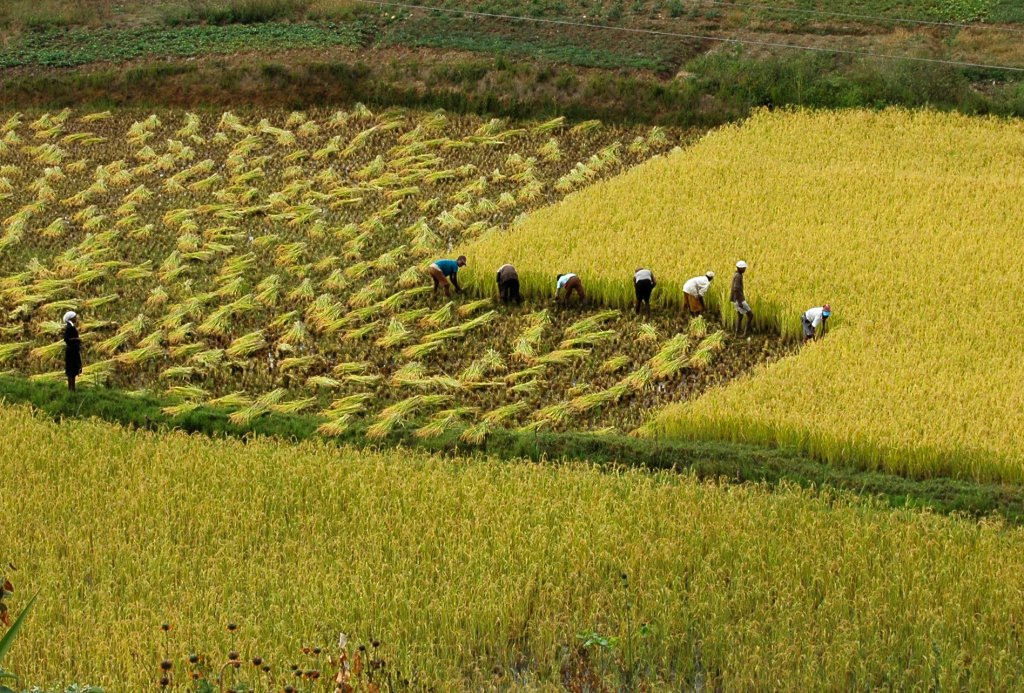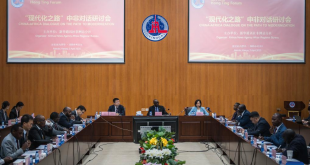Published: October 08,2023

In June, a bowl of hybrid rice from Africa appeared as a special offering at the tomb of Yuan Longping, China’s “father of hybrid rice.” The gift was brought in person by Rakotoson Philibert, former Secretary General of the Ministry of Agriculture of Madagascar.
Recalling that moment, Philibert said in a recent telephone interview that the hybrid rice developed by Yuan and his team has gradually helped Madagascar to eradicate hunger, and convinced the world that hunger would eventually be wiped out.
Madagascar devotes most of its arable land to rice cultivation. However, due to the low yields of local rice and the lack of advanced rice-growing techniques, the country once relied heavily on imports to feed its tens of millions of people.
In 2007, China’s Hunan Academy of Agricultural Sciences and Yuanshi Seeds Industry Hi-Tech Co. initiated a hybrid rice demonstration project in Madagascar.
Experts applied multiple procedures over several years to select an appropriate hybrid rice variety, employing variety breeding and analysis of invasive-species risks. Finally, Chinese hybrid rice was planted in the soil of Madagascar and taken to the tables of African families.
Hu Yuefang, a 65-year-old agriculture expert from Yuanshi Seeds, along with his team, explored nearly every rice-planting area on the island for more than a decade, so they could succeed in developing a hybrid rice variety with the best adaptability to conditions in Madagascar.
Their thorough and determined efforts have paid off with good harvests resulting from their work. By December 2022, the planting area of Chinese hybrid rice in Madagascar was 75,000 hectares, with an average output of around 7.5 tonnes per hectare, much higher than other local breeds that produce 3 tonnes per hectare.
“Higher yields and better texture make Chinese rice popular in Africa,” said Andre, head of a private Madagascan agricultural company.
So far Chinese hybrid rice has been introduced to over 20 African countries.
Ngendakumana Charles, a 43-year-old farmer from Burundi, said that in the past he had to eke out a living by growing local rice. Now, with the income secured from growing Chinese hybrid rice, he has built a new house and opened a rice mill. The rice mill boosts his earnings and offers job opportunities to neighboring farmers.
To help more African countries reduce food shortages, the China National Hybrid Rice R&D Center established an African sub-center in Madagascar in 2019. The aim of this sub-center is to promote cooperation concerning hybrid rice development and agricultural training.
“The annual sowing area of hybrid rice globally is 8 million hectares. If the yield per hectare expands by two tonnes, the annual increase in output will be 16 million tonnes, which is enough to feed an additional 40 to 50 million people,” said Zhang Lijun, who is head of the African subsidiary of Yuanshi Seeds.
By introducing Chinese hybrid rice and rice-growing techniques, within the framework of the Belt and Road Initiative, African countries are one step closer to filling their people’s rice bowls, according to Philibert.
Xinhua
 Africa -China Review Africa -China Cooperation and Transformation
Africa -China Review Africa -China Cooperation and Transformation
